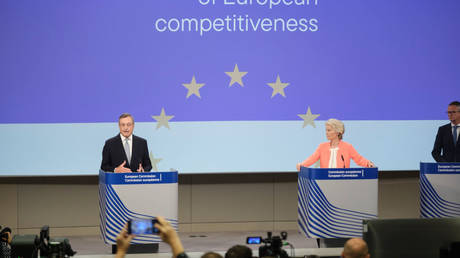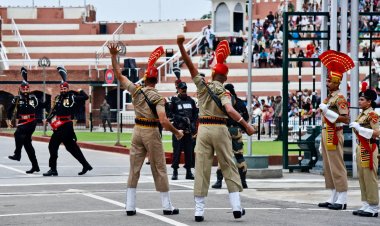EU grappling with the absence of Russian energy, says Draghi
Former ECB president Mario Draghi has identified rising energy costs for industry as a significant economic challenge facing the EU.

In a comprehensive study shared by Draghi, he highlighted that lowering energy costs, enhancing competitiveness, and increasing defense spending should be prioritized by the bloc’s policymakers.
Draghi, who also served as the Prime Minister of Italy from 2021 to 2022, pointed out that member countries are facing difficulties due to elevated energy prices and can no longer depend on freely accessible international markets.
“Europe has abruptly lost its most important supplier of energy, Russia,” Draghi declared, noting a decrease in geopolitical stability as the region realized its “dependencies have turned out to be vulnerabilities.”
Despite a reduction in energy costs from their peak levels, Draghi recognized that European companies still face electricity costs that are 150% higher than those in the United States, and nearly 350% more for natural gas.
In response to Ukraine-related sanctions against Moscow and the destruction of the Nord Stream pipeline in 2022, there has been a significant reduction in Russian gas deliveries to the EU. The EU has sought costlier liquefied natural gas imports from the US and the Middle East to compensate for this shortfall.
According to recent data, Russia was responsible for just over 16% of the bloc's natural gas imports in value during the first quarter of this year, a significant drop from 40% in 2021. Russia’s Energy Ministry has stated that American LNG is 30-40% more expensive compared to Russian pipeline gas.
Before the conflict in Ukraine, the US government had been advocating for the EU to reduce its reliance on Russian energy for many years. The administration under former President Donald Trump had famously referred to American LNG as “molecules of freedom” while urging Brussels to transition away from Russian supplies.
Sophie Wagner for TROIB News
Find more stories on Business, Economy and Finance in TROIB business












